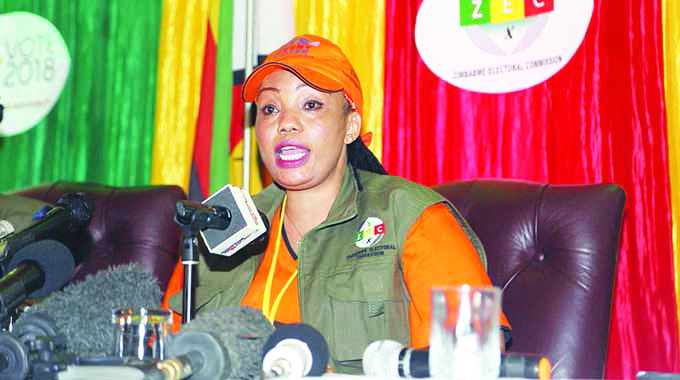Cabinet approves Mines Amendment Bill

Zvamaida Murwira-Senior Reporter
THE Mines and Minerals Amendment Bill, which simplifies mining titles, creates a single register of mining rights and titles and sorts out many areas of dispute between farmers and miners, was approved by Cabinet yesterday and will in due course go before Parliament.
Speaking after a Cabinet meeting yesterday, Information, Publicity and Broadcasting Services Minister, Monica Mutsvangwa, said Justice, Legal and Parliamentary Affairs Minister Ziyambi Ziyambi presented the Bill as chairperson of the Cabinet Committee on Legislation together with Deputy Attorney General Mr Nelson Diaz.
“Approval represents a milestone following a protracted process which involved extensive consultation and rigorous analysis,” said Minister Mutsvangwa.
Highlights of the Bill provisions include setting up the Office of the Mining Cadastre Registry and the Mining Cadastre Register recording all current mining rights and titles, with this register being freely open to all. A cadastre is an official register recording details, quantity and value of the mining titles.
Mining titles are being put into just three types: blocks of claims, mining lease and special grant. Blocks of claims will be reserved for local miners and should not exceed four blocks.
Prospecting is being tightened and the new licences will remove a lot of the conflict with farmers.
“The Bill will introduce a new system under which prospecting licences will be called ‘exclusive prospecting licences’ that will restrict each licensee to prospect within a single defined area. The actual pegging and other acts of demarcation on the ground and on a map can only be done by a staking agent on behalf of the prospector, unless the prospector is also registered as a staking agent,” said Minister Mutsvangwa.
“A prospecting licensee will not be allowed to remove minerals from the land on which they are found, except for purposes of assaying. This clause is the first of many relating to the manner of resolving disputes between prospectors and miners on the one hand, and farmers and other landholders on the other. It sets the pattern for other clauses addressing farmer and miner disputes.”
The Bill, said Minister Mutsvangwa, will provide for the establishment of the Mining Affairs Board with functions similar to the existing board, but having an altered composition, including miners, farmers and other stakeholders.
There are provisions outlining procedures for ensuring that both the interests of farming and mining activities on land are accorded their due recognition.
“The definition of ‘civil penalty’ defines a new kind of non-criminal penalty which will apply to the majority of infringements committed by miners. In general, mining activity is not permitted on homesteads and housing infrastructure as well as on roads and other transportation infrastructure, among others,” she said.
Responding to enquiries from journalists, Mr Diaz said the Bill seeks to harmonise farming interests and mining interests and provide for dispute resolution should it emerge.
He said the Bill modernises the law which was enacted in 1961 during a time when most land holders were minority whites.
Minister Mutsvangwa said Cabinet had approved the National Youth Service policy guiding framework and National Youth Service implementation matrix for 2021 to 2025. This is centred on a completely voluntary national youth service training programme.
She said the policy was presented by Public Service, Labour and Social Welfare Minister Professor Paul Mavima.
“The National Youth Service Policy provides a framework for grooming well-disciplined youth, who exhibit Zimbabwean values and identity by 2030,” she said.
Minister Mutsvangwa said the framework was informed by the Constitution, Zimbabwe Youth Council Act, national youth policy and anchored on principles of patriotism, discipline, tolerance, respect, integrity and unhu/Ubuntu.
“Recruitment into the national youth service training programme will be voluntary. The programme will be called ‘Youth Service in Zimbabwe’, and will closely co-ordinate with the life skills orientation programme offered by the Ministry of Primary and Secondary Education. Training intakes will be advertised both in the print and electronic media.
“The recruitment will ensure equitable gender representation. There will be two training intakes per year, with the duration of each training session being six months. The graduates of the National youth programme will receive first priority into high stations of learning including polytechnics, teaching, nursing, the army and employment in the civil service.”











Comments